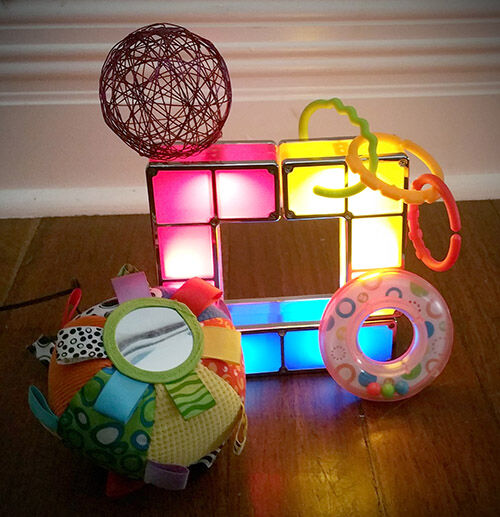Blog
Supporting the curriculum through ‘making’
April 10th, 2016 by Karen Category: Projects

Much of what we aim to do in the Library Makerspace is extra-curricular, providing opportunities for students to develop skills, knowledge and experience they want or need, and that subsequently supplement their formal learning.
However, the Makerspace has also started to directly support the formal teaching curriculum, by providing space and equipment as well as helping to facilitate learning activities and projects. This semester, for example, we are supporting students studying data visualization, information studies, and computer science.
One recent example of how ‘making’ can support the curriculum involved Information Studies students engaging in an activity using lego (or other materials) to construct a physical object in order to be able to better understand some abstract information.
The students had to consider different conceptual frameworks that are used to guide the development of information literacy programs in schools, libraries and other organisations. They then created a 2D or 3D representation of the concepts, (using lego or other objects) and provide a written or verbal explanation.
While initially we introduced the activity to provide a quick, fun break in-between other activities, it soon turned into a valuable learning experience. Students were very engaged with the task of making the objects, which involved having to identify the central concepts of the framework, think about what they meant and thus how they could be visually represented. A number of online students also participated in the activity, using materials from around their home, and then posting the results on Blackboard, our learning management system.

It was very rewarding to see the students creations, which included 3D constructed objects, 2D images, and Animoto videos. We took photos of them and when we looked at them all together, we realised we had a wonderful, student-made learning resource consisting of a collection of visual information and accompanying text. We have curated them together in Scalar, an open-source scholarly publishing interface which aims to support the publication of rich media content.
We are just at the beginning of our journey of exploring the wonderful possibilities of publishing using Scalar – you can view our ‘work in progress’ at this link:
Information Literacy Frameworks: Representational objects made by Curtin Info Studies students.
For me, this exercise demonstrated the enormous value that making things can bring to more formal learning situations, and has made me even more enthusiastic to help making become an integral part of the student experience.
